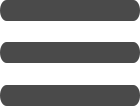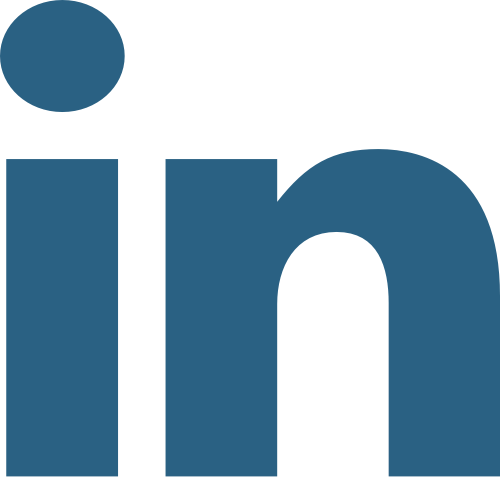
How can we be creative and not starve?
Sarah Hutchinson4 Oct 16
heading textI recently got some friends together to try and solve one of the big problems of our generation: how can we translate all the amazing stuff we learnt at university into satisfying sources of income? We used the group creativity tool Neonce to provide a platform and structure so we could do it remotely.
The background
Speaking for my generation of graduates: we go to university, learn lots of really useful, interesting stuff and feel pretty confident when we graduate. It’s time to show the world all the awesome stuff we know. But… wait. Six months fly by and we still don’t have graduate jobs. We’ve now applied to so many we can probably recite the template of our cover letter and parts of our CV, but no jobs have materialised. Money to live on is an issue, we’ve obviously taken a low-skilled job and probably moved back in with our parents.
As a graduate of the Design Academy Eindhoven I certainly felt this way, with the added annoyance that my degree was so practical! Surely, it was directly preparing me for the job market? People who enjoy reading Shakespeare for 3 years might struggle to find a way to apply their skills, but I’d gone half way to setting up my own design studio. I had business cards! I was ready!
Fortunately, I was not alone and could commiserate with many friends struggling to make it in creative industries. But what’s the solution? I decided to see if this new creativity tool could offer any insights.
The workshop
I did the workshop with three fellow Design Academy graduates. We ran it remotely, me from my kitchen in London and them from their separate homes in the Netherlands. As it was their first time using the software, we used Skype to stay in touch and so I could answer any questions as they came up. Fortunately, they’d all watched the tutorial video (which, if you don’t know the process, I’d recommend) and things went very smoothly.
Create phase
Process: create ideas individually and promote three to the next phase.
The actual question we used was, “What is the best way to use our skills and get money after DAE [Design Academy Eindhoven]?”. It’s an issue we’ve all thought about for at least a few months now and I started typing out a few knee-jerk reactions until I thought of a question to help define my thinking: “What organisational structures would we like to work in?”.
It helped me come to the first answer I wanted to share with the others: “Change direction every 6 months” e.g. try out all the different organisational structures as quickly as possible to get a diverse experience.
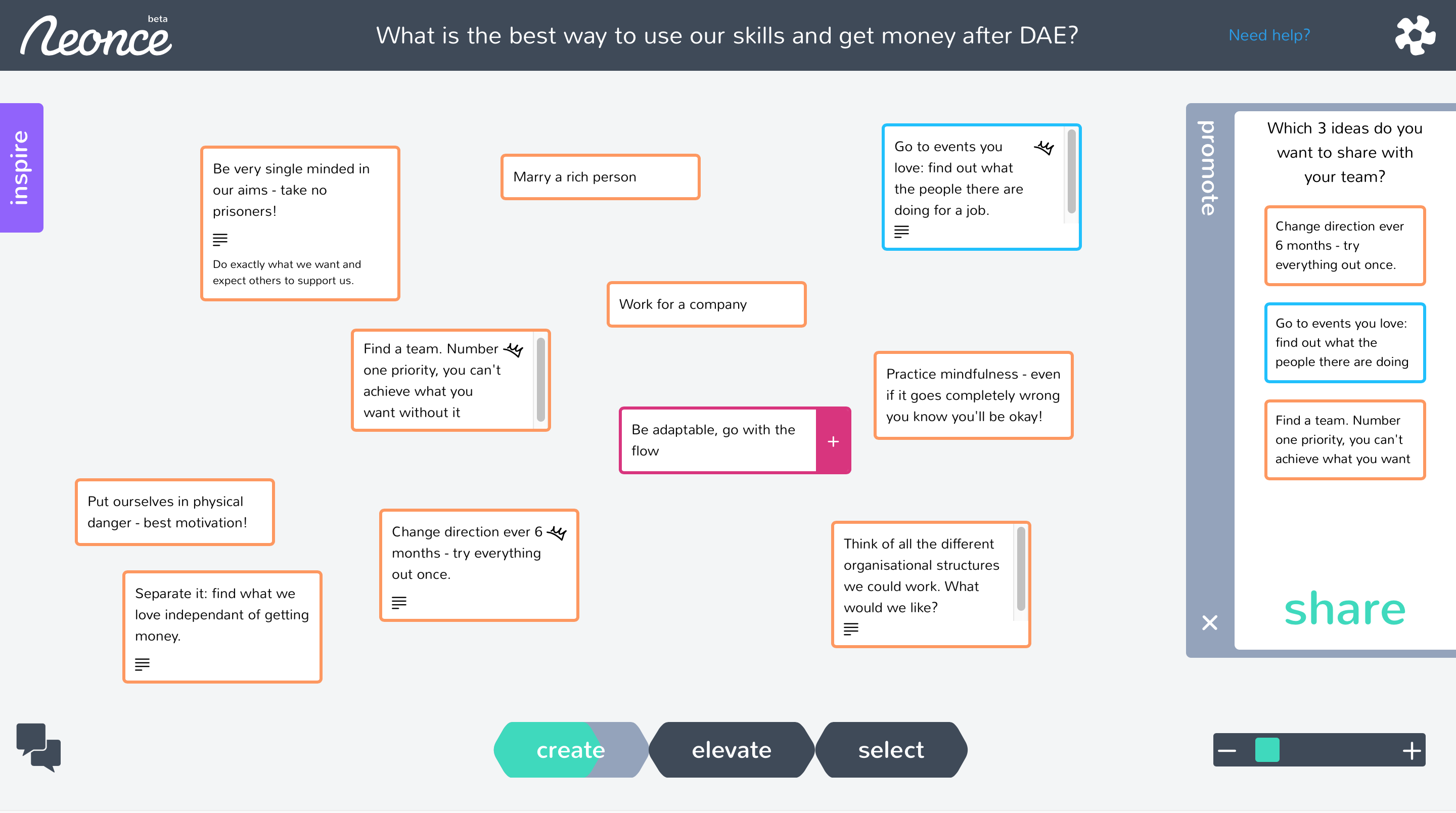
I also tried out the ‘Inspire’ tool - a random word association game - and got the word ‘pain’ (which seemed fairly appropriate for job hunting!). It got me thinking about being hurt or attacked which lead me to I write down “Put ourselves in physical danger — best motivation!”. Although a fairly flawed idea in itself, it got me thinking of other physical things I could do: go to events and meet people, which I also shared, ‘Go to events you love’.
That in turn reminded me of the importance of including other people, so I wrote down ‘Find a team’. I wrote down a few more ideas but ended up sharing that one. By this time, I was really curious what everyone else had wrote down.
Elevate phase
Process: see everyone else’s shared ideas, develop them and add new ideas. Choose three more to share.
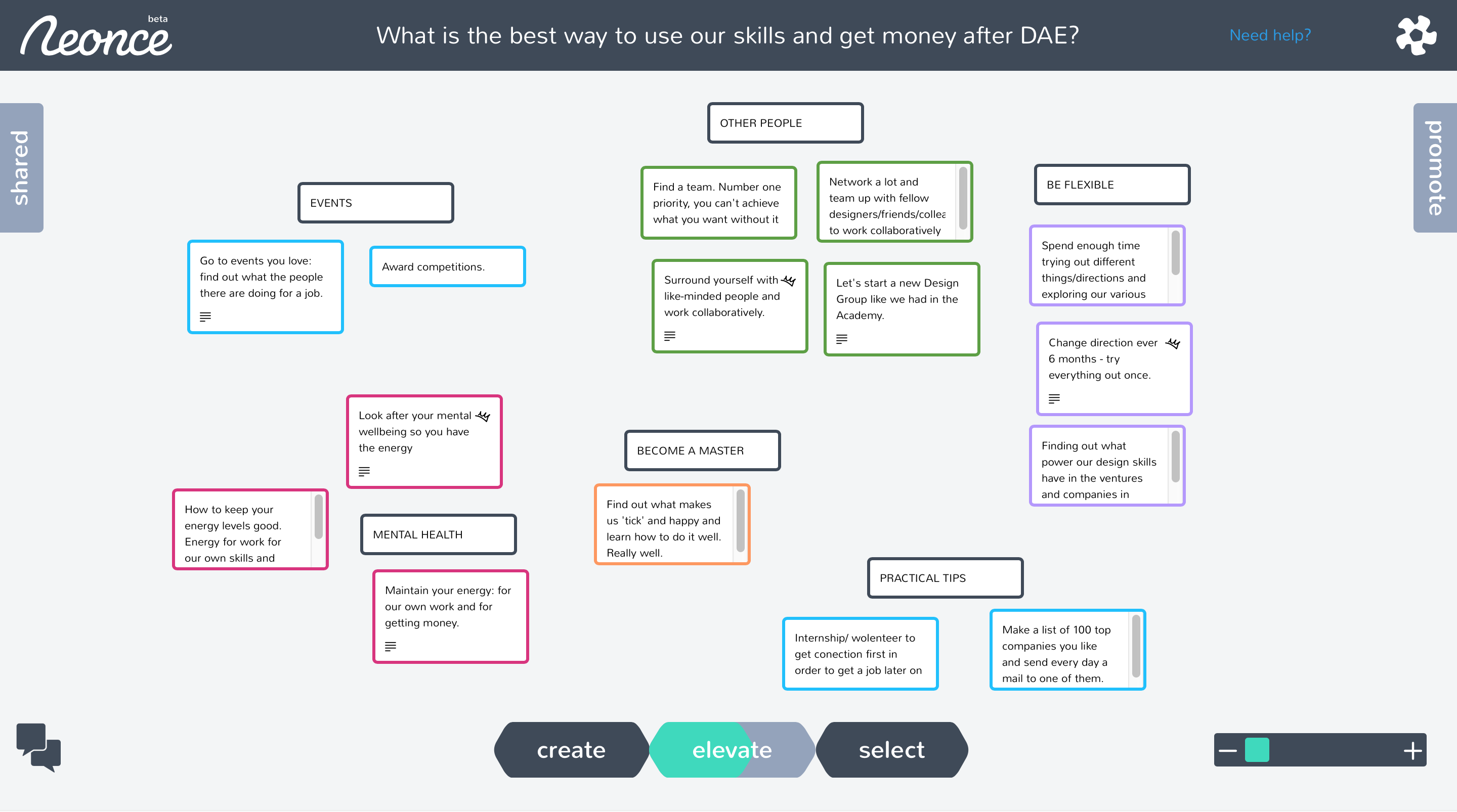
I loved seeing what everyone else had wrote. It was great that ‘maintaining energy levels’ and ‘looking after yourself’ had been included. It wasn’t something I’d focused on so far but it’s vital for sustaining the search for a fulfilling life. It sparked a thought which I ended up sharing about mental health, summarising and adding to the existing ideas. I even included a bit about mindfulness, which I’d thought of in the create phase but not shared.
People had also really picked up upon the need for surrounding ourselves with the right people, “Let’s start a new design group” especially warmed my heart as it’s an idea I’ve had before but not yet managed to create. From that pool of thoughts I added an existing idea which already summarised it for me, “Surround yourself with like-minded people and work collaboratively.” The third card I promoted to the next phase was my own idea from the previous phase “Change direction every 6 months”, which I was still quite proud of.
Select phase
Process: See everyone’s shared idea and rank them.
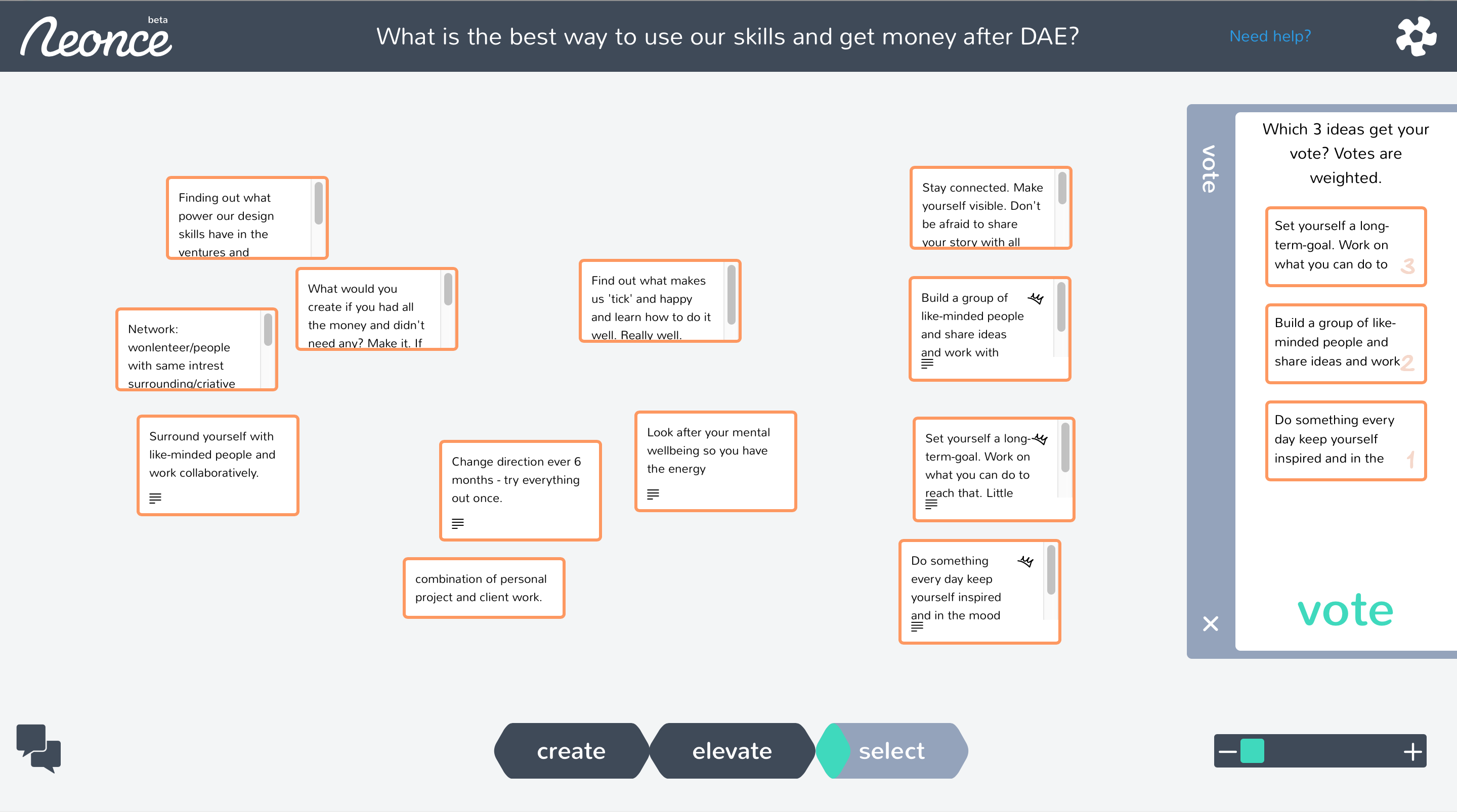
The final select phase had a slight problem, in that I liked all the ideas! Also, there was a lot of overlap. In the end I prioritised ‘setting goals’, ‘building a network’ and ‘keeping inspired daily’.
Results
When the results rolled round I saw everyone else chosen an idea that I had overlooked. The idealism of...
_ ‘What would you create if you had unlimited money and didn’t need any? Make it. If you believe in it so much, other will too and that will bring money in the end’_
...was infectious and it rose to the top. ‘Surrounding yourself with like minded people’ was second and ‘setting long term goals and looking after your mental health’ were tied on points in equal third.
The conclusion
My friends are awesome people, and even gathering just for an hour long remote workshop was inspiring and encouraging. We had a Skype chat about it afterwards and they made me realise that this question is relevant to a lot more people.
It would be fascinating to discover what other groups of design graduates are thinking. As an established group of friends, our experiences and interpretations may have grown together, but take a different friendship group, university or country; how would they answer the question? Would there be any common themes? Could we start translating our passion into a sustainable lifestyle?
To which the only answer is, we’d love to find out! Are you a design graduate trying to find a way to translate your skills into an income? Or do you have another background but are trying to find an answer to the same question?
The brilliant thing about Neonce is you can think about solutions together from anywhere in the world.
Send an email to hello@neonce.com with ‘Skills and Money Workshop’ in the subject and we can include you in a workshop looking for creative answers to this most challenging of questions.
